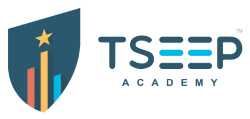3D Assessment for 360° Youth Development: A Transformative Approach

In today’s rapidly evolving world, holistic development is no longer optional – it’s essential. Youth must be equipped not only for academic success but for life itself. Skills such as adaptability, empathy, and emotional resilience are increasingly recognized as foundational for lifelong achievement. A robust Three – Dimensional (3D) Assessment Framework – integrating Multiple Intelligences (MI), Emotional Intelligence (EI), and Multiple Natures (MN) – offers a comprehensive, research – backed method to understand and nurture the full spectrum of youth potential. This approach resonates strongly with the National Education Policy (NEP) 2020, which champions learner – centered, inclusive, and skill – based education.
Multiple Intelligences, a groundbreaking theory introduced by Dr. Howard Gardner of Harvard University (1983), reframes intelligence as a pluralistic construct encompassing linguistic, logical – mathematical, spatial, bodily – kinesthetic, interpersonal, intrapersonal, musical, and naturalistic domains. A University of Mumbai study (2012) found that MI – aligned instruction significantly boosted student motivation, engagement, and self-esteem – especially among those with non – traditional learning styles. MI assessments empower educators to tailor instruction in ways that respect and cultivate each learner’s unique cognitive profile.
Emotional Intelligence (EI), popularized by psychologist Dr. Daniel Goleman (1995), encompasses the ability to perceive, understand, regulate, and express emotions effectively. According to a national study by the Indian Council of Medical Research (ICMR, 2015), adolescents with higher EI exhibited stronger coping mechanisms, healthier relationships, and higher academic resilience. Recognizing this, Indian frameworks such as CBSE’s Life Skills Education and NCERT’s Adolescence Education Programme have incorporated EI into curricula to build students’ emotional and social capacities.
Multiple Natures (MN), developed by educator Steven Rudolph, introduces a behavioral lens by identifying individuals’ innate tendencies – such as leadership, caregiving, inventiveness, or entrepreneurship. Pilot programs conducted by Kerala and Maharashtra education departments (2020 – 2022) showed that integrating MN assessments with career counseling significantly enhanced students’ self – awareness and career clarity. The MN framework uniquely bridges personal attributes with career pathways, aligning passion with purpose.
Together, MI, EI, and MN form a 3D paradigm that comprehensively addresses cognitive, emotional, and vocational dimensions of youth development. This framework enables schools, counselors, and policymakers to offer personalized guidance, foster emotional resilience, and promote purpose – driven learning experiences.
An Innovative Tool by TSEEP Academy “IntelliTrait“
To make this model accessible, TSEEP Academy has developed a comprehensive online 3D Assessment Tool IntelliTrait grounded in the theories of Gardner, Goleman, and Rudolph. This user – friendly digital platform enables students, teachers, and career counselors to assess an individual’s profile across MI, EI, and MN dimensions. The tool generates an integrated report with actionable insights, personalized learning strategies, and career guidance suggestions aligned with the individual’s strengths and interests.
This digital innovation supports 360° youth development, offering a scalable and evidence – based solution in line with NEP 2020’s call for formative, competency-based, and tech – enabled education. By leveraging this tool, institutions can foster a new generation of emotionally intelligent, self – aware, and future – ready citizens prepared not just for exams, but for life.
References
- Gardner, H. (1983). Frames of Mind: The Theory of Multiple Intelligences. New York: Basic Books.
- University of Mumbai (2012). Study on the Application of Multiple Intelligence Theory in Secondary Education.
- Goleman, D. (1995). Emotional Intelligence: Why It Can Matter More Than IQ. Bantam Books.
- Indian Council of Medical Research (ICMR) (2015). Emotional Intelligence and Adolescent Mental Health: A National Study.
- CBSE (2021). Life Skills Education Guidelines for Schools.
- NCERT (2014). Evaluation Report: Adolescence Education Programme.
- Rudolph, S. (2014). Solving the Ice Cream Dilemma: Choosing the Right Career. New Delhi: Jiva Institute.
- Kerala SCERT & Maharashtra Education Department (2020–2022). Pilot Reports on MN-Based Career Profiling in Schools.
- Ministry of Education (2020). National Education Policy 2020. Government of India.




